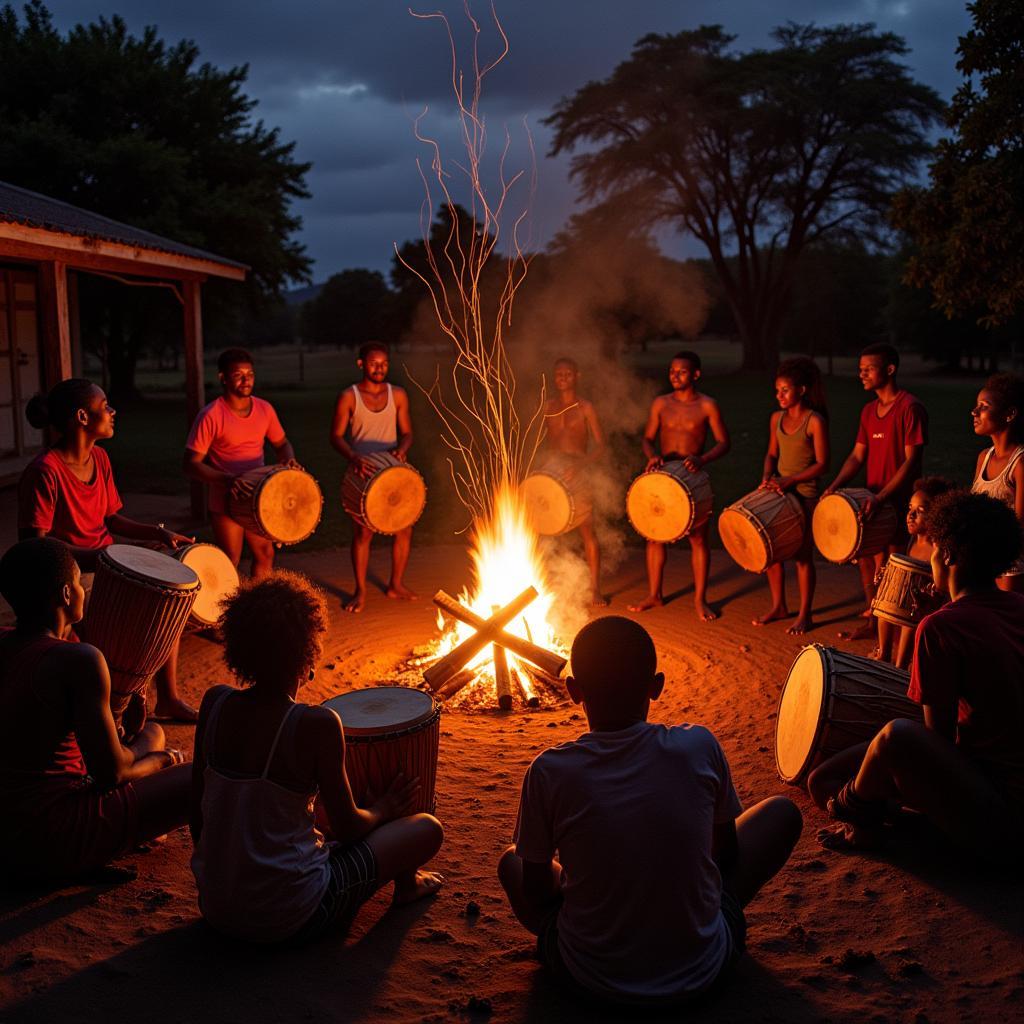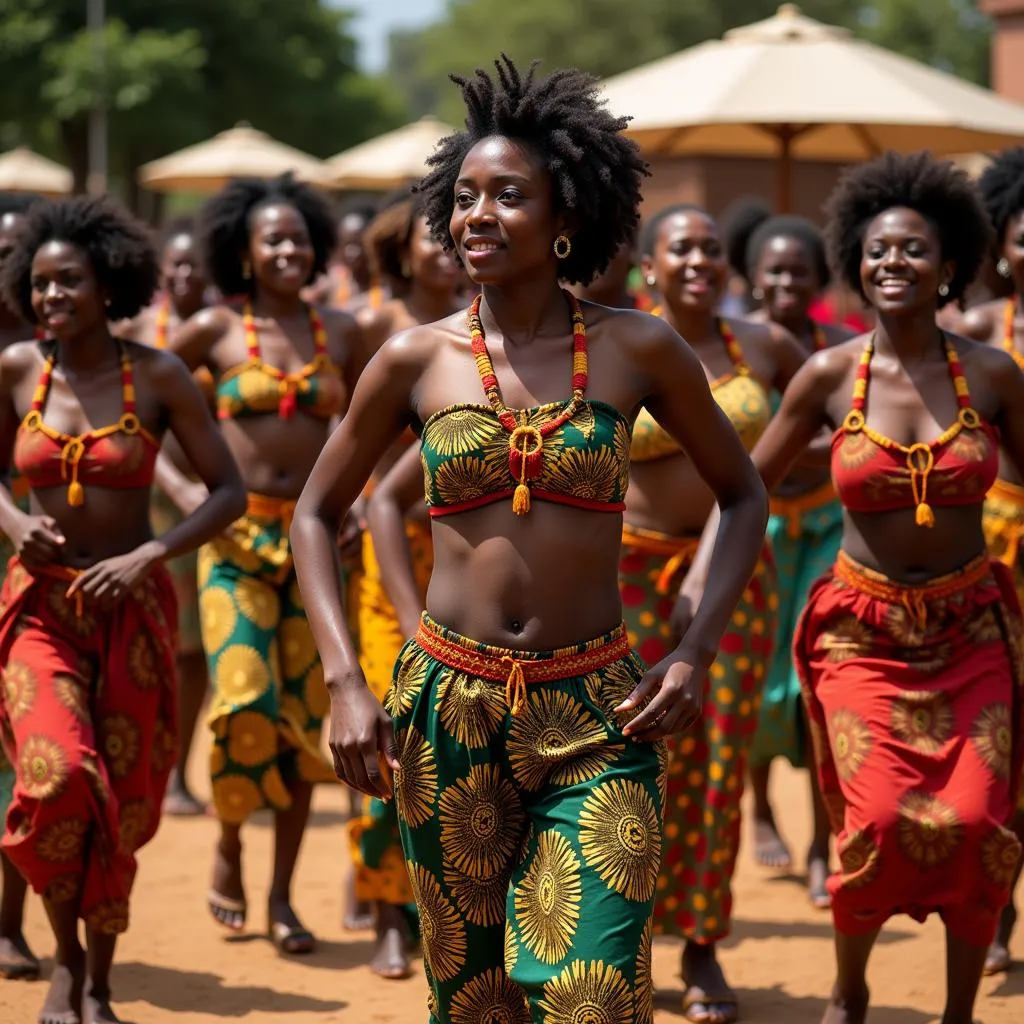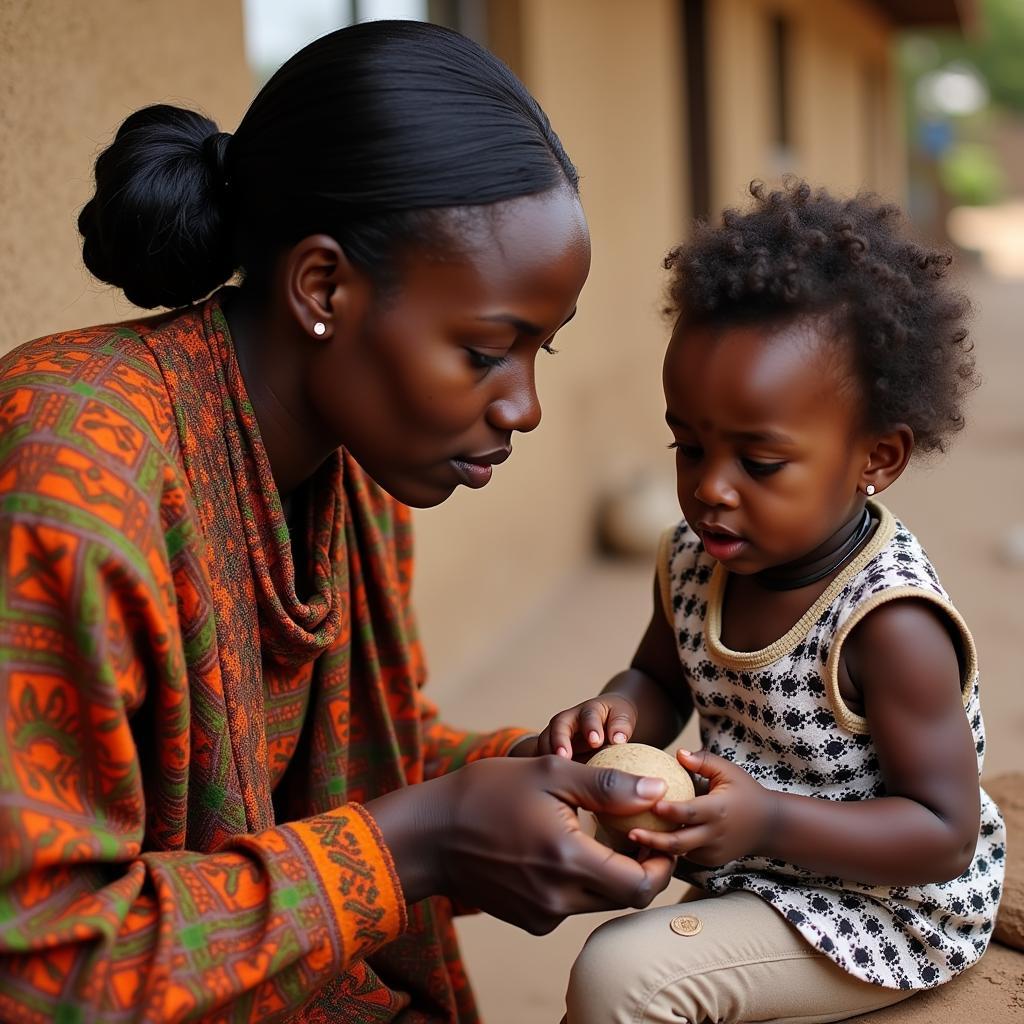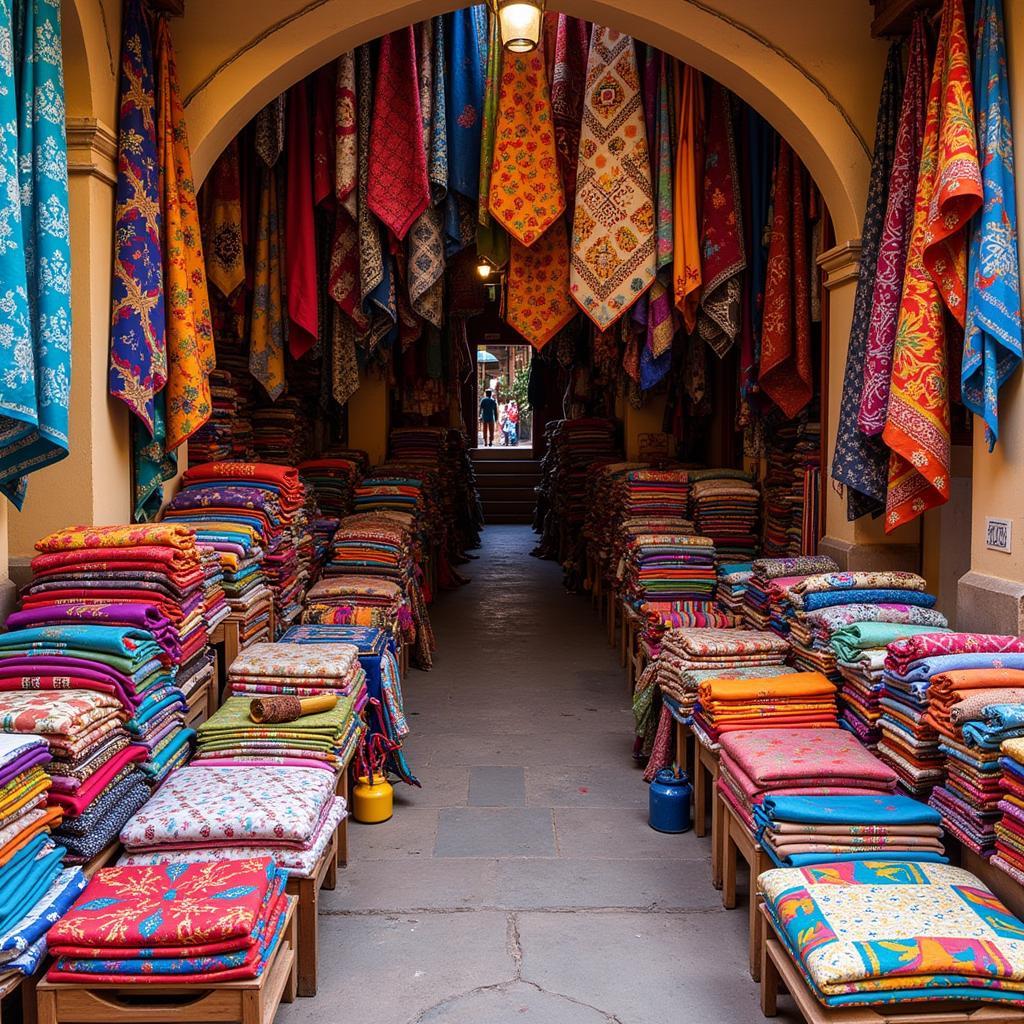African Countries Languages: A Diverse Linguistic Landscape
Africa boasts an incredible linguistic diversity, with an estimated 2,000 languages spoken across its 54 countries. This rich tapestry of languages reflects the continent’s complex history, cultural interactions, and ancient traditions. Understanding the “African Countries Languages” is key to appreciating the depth and breadth of African cultures. For many looking to explore business opportunities, cultural exchanges, or simply expand their knowledge, navigating this linguistic landscape can be both fascinating and challenging.
A journey through African languages reveals fascinating insights into the continent’s history and the movement of its people. Many languages are oral, passed down through generations, preserving rich oral traditions and folklore. Others have developed written forms, contributing to a growing body of African literature. The colonial era significantly impacted African linguistic landscapes, with European languages like English, French, and Portuguese becoming official languages in many nations. This linguistic legacy continues to shape communication, education, and governance across the continent. See this article on African countries and their languages.
Exploring the Major Language Families of Africa
The languages of Africa are broadly classified into four main families: Afro-Asiatic, Niger-Congo, Nilo-Saharan, and Khoisan. The Afro-Asiatic family, predominant in North Africa, includes languages like Arabic, Berber, and Somali. The Niger-Congo family, the largest in terms of number of languages, covers much of sub-Saharan Africa and includes Swahili, Yoruba, and Zulu. The Nilo-Saharan family is concentrated in East Africa and includes languages like Maasai and Luo. Lastly, the Khoisan languages, known for their unique click consonants, are spoken primarily in Southern Africa. Understanding these families helps us appreciate the interconnectedness and distinct origins of African languages.
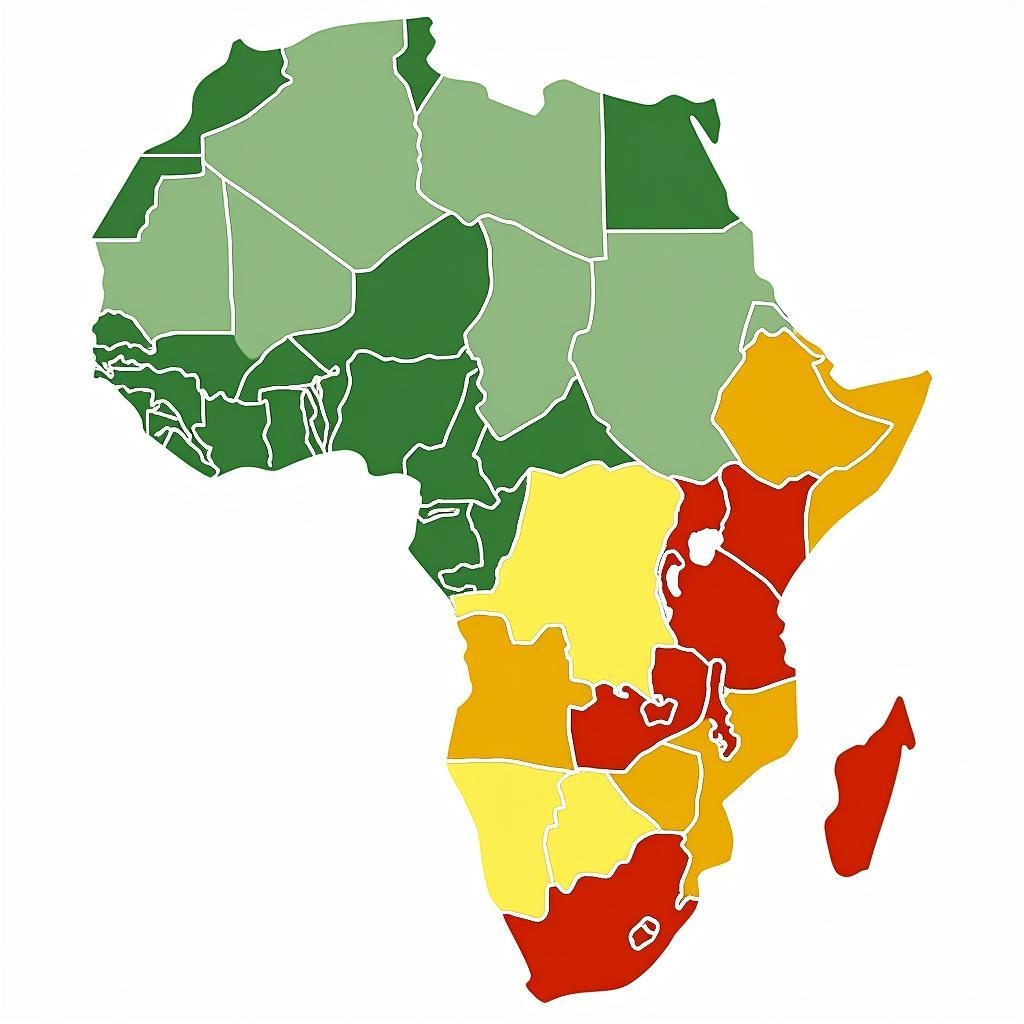 Map of African Language Families
Map of African Language Families
How Many Languages are Spoken in Each African Country?
The number of languages spoken within individual African countries varies significantly. Nigeria, for example, has over 500 languages, reflecting its incredible ethnic diversity. Other countries, like Cape Verde, have a smaller number of languages, often a reflection of their historical and geographical context. This variation highlights the dynamic linguistic environment across the continent. For a comprehensive overview of official languages, visit African countries and their official languages.
The Role of Official Languages in African Countries
Many African nations have adopted official languages, often chosen for administrative, educational, and political purposes. These official languages often reflect colonial history, with English and French being common choices. However, many countries also recognize multiple national or regional languages to promote cultural inclusivity and preserve linguistic heritage. The choice and use of official languages is a complex and often debated topic, reflecting the delicate balance between national unity and cultural diversity.
What is the Most Widely Spoken Language in Africa?
While many associate English or French with Africa, Arabic is the most widely spoken language on the continent, primarily due to its prevalence in North Africa. However, Swahili, a Bantu language with influences from Arabic, is widely used as a lingua franca in East Africa, facilitating communication across diverse linguistic groups.
Awa Thiam, a Senegalese linguist, emphasizes the importance of multilingualism: “In Africa, languages are not just tools for communication, but bridges connecting communities and cultures.” This interconnectedness is evident in the widespread use of both indigenous and imported languages across the continent. You can also find interesting information regarding this on African countries and regions official languages.
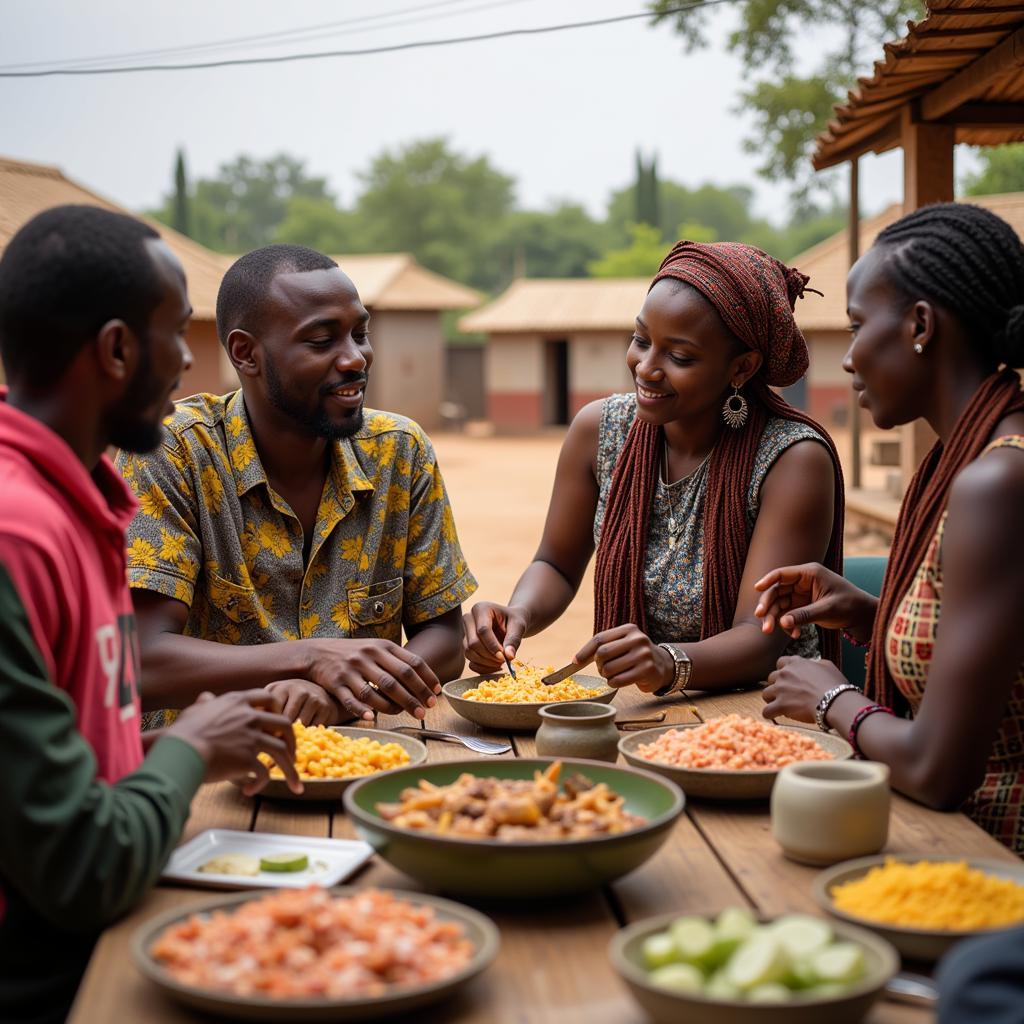 Arabic and Swahili Speakers Connecting
Arabic and Swahili Speakers Connecting
The Future of African Languages
Despite the challenges posed by globalization and the dominance of certain languages, there is a growing movement to revitalize and preserve African languages. Efforts are underway to promote language education, develop digital resources, and create new forms of media in indigenous languages. This resurgence of interest in African languages is crucial for ensuring cultural continuity and empowering future generations. Learn more about African capitals, currencies, and languages on this page: African countries capital currency and language. You can also check the African countries in German: African countries in German.
In conclusion, the “african countries languages” represent a vibrant and complex linguistic tapestry, reflecting the continent’s rich history and cultural diversity. From the widespread use of Arabic and Swahili to the thousands of indigenous languages spoken across different regions, exploring this linguistic landscape is a journey into the heart of Africa. Understanding and appreciating this diversity is essential for fostering intercultural understanding and promoting sustainable development across the continent.
FAQ
- What are the four main language families in Africa? Afro-Asiatic, Niger-Congo, Nilo-Saharan, and Khoisan.
- What is the most spoken language in Africa? Arabic.
- Why are there so many languages in Africa? Africa’s diverse history, cultural interactions, and ancient traditions have contributed to its linguistic richness.
- What is the role of official languages in Africa? Official languages are used for administrative, educational, and political purposes.
- Are African languages endangered? While some are, there are ongoing efforts to revitalize and preserve them.
- What is a lingua franca? A language that is adopted as a common language between speakers whose native languages are different.
- Where can I learn more about specific African languages? Numerous online resources and academic institutions offer information on African languages.
Need assistance? Contact us 24/7:
Phone: +255768904061
Email: [email protected]
Address: Mbarali DC Mawindi, Kangaga, Tanzania.
